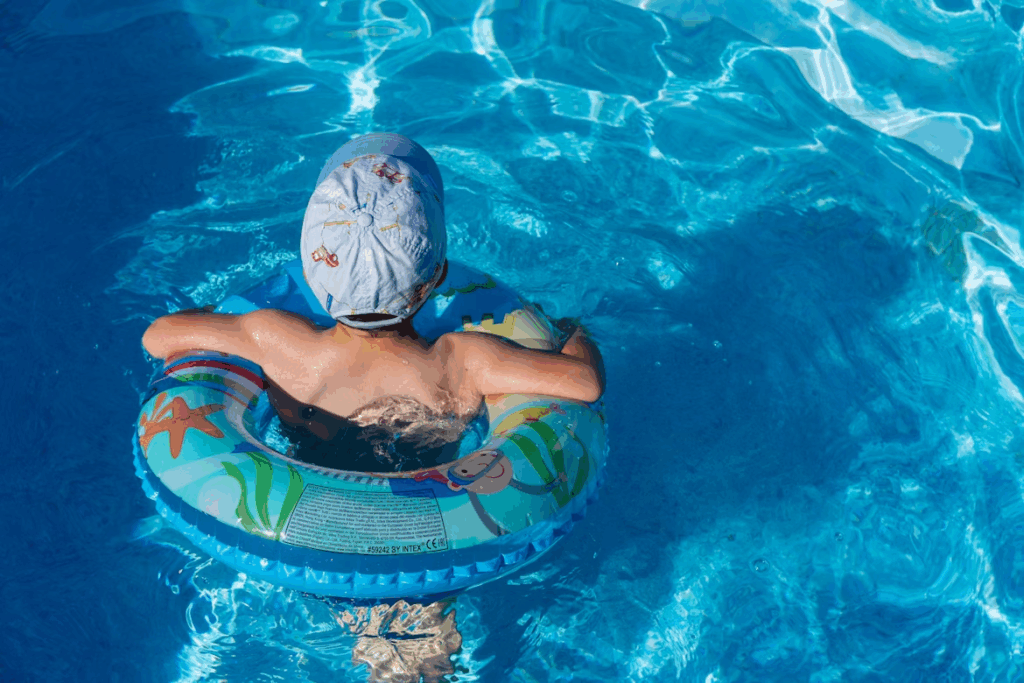Choosing a swim school in Auckland isn’t as straightforward as it seems. With dozens of facilities across the city offering lessons for babies, toddlers, and older children, it’s easy to feel overwhelmed by options. But not all swim schools are created equal, and when it comes to your child’s safety, confidence, and progress in the water, the right environment makes all the difference.
Whether you’re looking for their very first splash or aiming to develop strong swimming techniques, this guide will help you identify what matters most when selecting a swim school in Auckland.
1. Safety First, Always
If there’s one non-negotiable, it’s safety.
Before anything else, make sure the swim school follows strict safety protocols. Are instructors certified in first aid and CPR? Is there a lifeguard on duty during classes? A quality swim school should be fully transparent about these essentials.
Look for the following:
- Certified instructors: Preferably trained through organisations like Austswim, Swimming New Zealand, or equivalent.
- Small class sizes: Especially for younger children, the ratio of teacher to student should never be too large. A 1:4 ratio is ideal for preschoolers.
- Emergency plans: Ask about their incident response policy. Do they conduct regular safety drills?
- Water quality and cleanliness: The facility should be clean, with clear, warm water. Chlorine levels and hygiene should be regularly monitored.
2. Instructor Quality: Not Just About Certification
A child’s experience in the water is largely shaped by who’s teaching them. A swim school in Auckland might have a fantastic pool and perfect location, but if the instructors aren’t engaged, patient, and encouraging, progress can be slow or even discouraging.
A good instructor knows when to push and when to reassure. They can connect with shy kids, energetic toddlers, and nervous first-timers.
Tip: Sit in on a trial lesson if the school allows it. Watch how instructors interact with children. Do they offer encouragement? Are they giving individual attention, even in a group setting?
3. Flexible, Age-Appropriate Programs
Every child develops differently, so a swim school should offer a clear, tiered program that allows movement between levels based on ability — not just age.
Questions to ask:
- Are there separate programs for babies, preschoolers, and school-aged children?
- Can a child be assessed and placed at a suitable level upon joining?
- Do lessons run year-round, or only by term?
- Are there options for makeup lessons if you miss a class?
Meanwhile, for older children looking to advance to stroke refinement or even pre-squad training, the structure should include progressive levels with skill assessments at each stage.
4. Facilities Can Make or Break the Experience
Not every parent pays attention to the facilities, but they should.
Here’s what to evaluate when you visit a swim school in Auckland:
- Indoor vs. Outdoor Pools: Auckland weather can be unpredictable, so an indoor heated pool ensures year-round consistency.
- Pool depth: Is there a shallow area for beginners and a deeper section for advanced swimmers?
- Clean, spacious changing areas: Especially important if you’re wrangling more than one child.
- Waiting area for parents: Comfortable seating, good visibility of classes, maybe even Wi-Fi!
- Parking: Sounds minor, but limited parking can be a headache, especially for after-school slots.
5. Location and Convenience Matter More Than You Think
In theory, you’d travel across town for the perfect program. In practice, Auckland traffic might have other plans.
Try to find a swimming school close to home, school, or work. This increases the chance that your child will attend regularly and reduces the chance of burnout from long commutes. Consider the schedule, too: are there after-school slots? Weekend mornings? Holiday programs?
6. Community Reputation and Word of Mouth
Online reviews are helpful, but nothing beats a personal recommendation. Ask other Auckland parents in your community, at school, or on local Facebook groups.
Look out for:
- Consistently high ratings over time
- Comments about instructor engagement
- Feedback about progression and communication
7. Cost Isn’t Everything, But It Does Count
The cost of swimming lessons in Auckland varies widely — from $15 to $30 per lesson, depending on the location, program, and teacher qualifications. While you shouldn’t pick a swim school based solely on price, it’s important to understand what you’re paying for.
Compare value by looking at:
- Class size
- Lesson duration (30 vs. 45 minutes)
- Instructor expertise
- Facilities and extras
- Cancellation and refund policies
- Trial class availability
Some swim schools offer sibling discounts, loyalty programs, or bundled pricing per term. Ask before enrolling, and don’t hesitate to ask if a free trial is available.
8. Parent Involvement and Communication
A good swim school involves parents in the journey. Whether that’s regular progress updates, parent viewing weeks, or simple communication by email or app, staying informed builds confidence.
Examples of great communication practices:
- Progress charts or digital reports
- Mid-term feedback from instructors
- End-of-term certificates or fun awards
- Newsletters or mobile apps with updates
Beyond Basics: Special Programs That Add Value
Some swim schools in Auckland go the extra mile with:
- Holiday intensive programs: Great for building skills quickly
- Water safety and survival training: Vital in a country surrounded by water
- Pre-squad or competition pathways: For kids with ambition
- Private lessons: Ideal for nervous swimmers or fast-tracked progress
Extras like these can turn a good swim school into a great one. If your child enjoys swimming and is keen to explore it further, choosing a school that offers pathways for growth can be a smart move.
Questions to Ask During a Visit or Trial
- Are instructors certified in CPR and swim teaching?
- What’s the teacher-to-student ratio?
- How are students assessed and progressed?
- Can parents observe lessons?
- Are makeup classes available if we miss one?
- How do you handle nervous or first-time swimmers?
- Is the pool heated year-round?
- What safety procedures are in place?
- Do you offer trial classes before enrolling?
- What’s included in the cost?
- Are there holiday or intensive programs?
- How often do you provide feedback on progress?
Final Thoughts
Choosing the right swim school in Auckland is part research, part gut feeling. Visit a few, talk to the staff, observe a class, and ask yourself: does my child seem comfortable here?
The right swim school will not only teach your child how to swim, but it’ll help them feel safe, confident, and proud of their progress. And for a skill as important as swimming, that’s worth investing the time to find.

